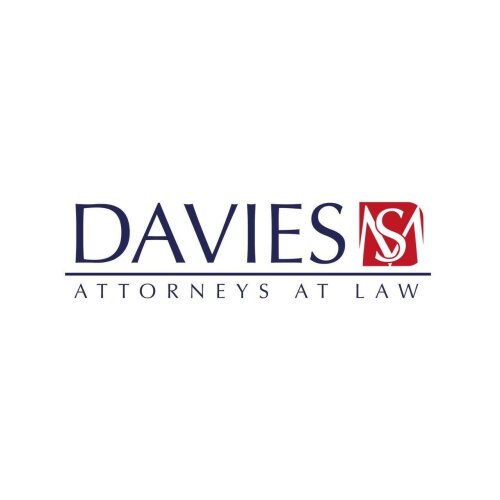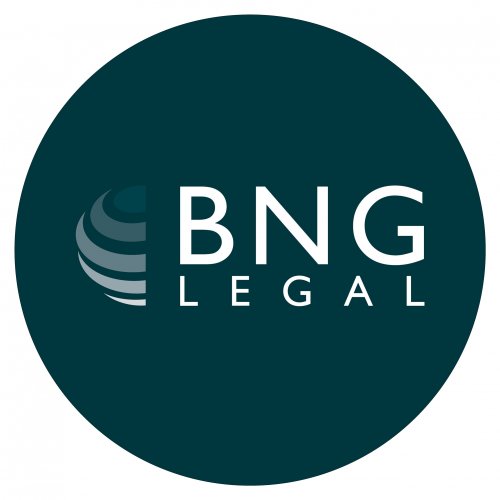Best Structured Finance Lawyers in Cambodia
Share your needs with us, get contacted by law firms.
Free. Takes 2 min.
Or refine your search by selecting a city:
List of the best lawyers in Cambodia
About Structured Finance Law in Cambodia
Structured finance is a complex area of financial law that focuses on designing and managing financial instruments and transactions tailored to meet specific needs, often involving pooling assets and transferring risk. In Cambodia, the field of structured finance is relatively new but growing rapidly, driven by increased investment, urban development, and a diversifying financial sector. Structured finance in Cambodia can cover asset-backed securities, project financing, securitization, derivatives, and syndicated loans. The legal framework is influenced by both local laws and international best practices, with a strong push from regulators to modernize the industry and attract foreign investment.
Why You May Need a Lawyer
Engaging with structured finance typically involves sophisticated legal arrangements and substantial financial risks. You may need a lawyer if:
- You are entering into complex financing arrangements, such as syndicated loans or asset-backed securities.
- Your business is seeking project financing for infrastructure or development projects.
- You are involved in cross-border transactions or foreign investment in Cambodia.
- You want to understand regulatory requirements and compliance obligations.
- You need to draft, review, or negotiate structured finance agreements or contracts.
- You are facing challenges related to bankruptcy, restructuring, or risk mitigation in structured transactions.
- You must resolve disputes or enforcement issues linked to structured finance products.
A qualified lawyer ensures that your interests are safeguarded, that you remain compliant with Cambodian laws, and that all financial arrangements are legally sound.
Local Laws Overview
Structured finance in Cambodia is underpinned by several key laws and regulatory agencies:
- The Law on Financial Leasing governs leasing activities that are often part of structured financial products.
- The Cambodian Civil Code and Commercial Law apply to contracts and business arrangements involving structured finance.
- The Law on the Issuance and Trading of Non-Government Securities provides the regulatory framework for the issuance of asset-backed securities or related instruments.
- The National Bank of Cambodia (NBC) and the Securities and Exchange Regulator of Cambodia (SERC) are the main regulators overseeing financial markets and structured products.
- Foreign exchange controls and banking regulations must also be considered in cross-border deals.
While Cambodia is moving toward the adoption of global standards, investors and businesses must ensure their transactions comply with all relevant Cambodian laws and regulations to avoid legal complications or enforcement issues.
Frequently Asked Questions
What is structured finance?
Structured finance refers to sophisticated financial transactions that pool assets, transfer risk, or create customized financing arrangements, such as securitization, asset-backed lending, and project financing.
Is structured finance common in Cambodia?
While still an emerging field, structured finance is increasingly common in Cambodia, especially in real estate development, infrastructure, agriculture, and foreign investment projects.
Who regulates structured finance transactions in Cambodia?
Key regulators include the National Bank of Cambodia for banking products and the Securities and Exchange Regulator of Cambodia for securities and capital market transactions.
Can foreigners participate in structured finance deals in Cambodia?
Yes, however, they must comply with local laws regarding foreign ownership, investment, and currency controls.
What are common risks in structured finance?
Risks include legal complexity, counterparty risk, regulatory compliance, and market volatility. A lawyer can help identify and mitigate these risks.
Do structured finance transactions require special documentation?
Yes, these deals typically require detailed contracts, offering documents, security agreements, and compliance checklists.
Are there tax implications in structured finance deals in Cambodia?
Yes, such transactions may trigger income tax, withholding tax, and value-added tax. It is important to get tax advice as part of your legal consultation.
What should I look for in a structured finance lawyer?
Look for experience with similar transactions, knowledge of Cambodian and international finance law, and strong negotiation skills.
Can structured finance be used for public-private partnership (PPP) projects?
Yes, structured finance is commonly used for PPPs, particularly in infrastructure, utilities, and energy projects.
What happens if a party defaults in a structured finance transaction?
Remedies depend on the terms of the contract and local law. Enforcement can involve court action or other dispute resolution mechanisms.
Additional Resources
- National Bank of Cambodia (NBC): Regulates banking, finance, and monetary policy.
- Securities and Exchange Regulator of Cambodia (SERC): Oversees securities markets and related transactions.
- Ministry of Economy and Finance: Facilitates government policies and regulations related to finance and investment.
- Cambodian Bar Association: Directory of licensed lawyers with expertise in finance law.
- International Finance Corporation (IFC): Offers guidance and support on best practices in emerging markets, including Cambodia.
Next Steps
If you need legal advice or assistance with a structured finance matter in Cambodia, consider these steps:
- Assess your business or personal financing needs and identify the type of structured finance transaction you require.
- Gather all relevant documents, including business plans, financial statements, and draft agreements if available.
- Research local law firms or individual lawyers specializing in structured finance or corporate law.
- Consult with a qualified attorney to understand your rights, obligations, and options under Cambodian law.
- Ensure compliance with all regulatory requirements and seek guidance on drafting, negotiating, or reviewing contracts and legal documents.
- If a dispute or enforcement issue arises, work closely with your lawyer for the best resolution.
Having professional legal support can help you navigate the complexities of structured finance in Cambodia and ensure that your transactions are secure, compliant, and successful.
Lawzana helps you find the best lawyers and law firms in Cambodia through a curated and pre-screened list of qualified legal professionals. Our platform offers rankings and detailed profiles of attorneys and law firms, allowing you to compare based on practice areas, including Structured Finance, experience, and client feedback.
Each profile includes a description of the firm's areas of practice, client reviews, team members and partners, year of establishment, spoken languages, office locations, contact information, social media presence, and any published articles or resources. Most firms on our platform speak English and are experienced in both local and international legal matters.
Get a quote from top-rated law firms in Cambodia — quickly, securely, and without unnecessary hassle.
Disclaimer:
The information provided on this page is for general informational purposes only and does not constitute legal advice. While we strive to ensure the accuracy and relevance of the content, legal information may change over time, and interpretations of the law can vary. You should always consult with a qualified legal professional for advice specific to your situation.
We disclaim all liability for actions taken or not taken based on the content of this page. If you believe any information is incorrect or outdated, please contact us, and we will review and update it where appropriate.
Browse structured finance law firms by city in Cambodia
Refine your search by selecting a city.














